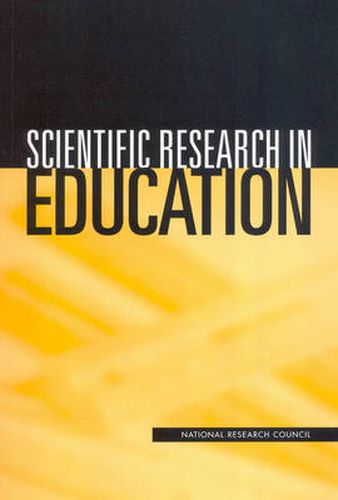Readings Newsletter
Become a Readings Member to make your shopping experience even easier.
Sign in or sign up for free!
You’re not far away from qualifying for FREE standard shipping within Australia
You’ve qualified for FREE standard shipping within Australia
The cart is loading…






Researchers, historians, and philosophers of science have debated the nature of scientific research in education for more than 100 years. Recent enthusiasm for evidence-based policy and practice in education - now codified in the federal law that authorizes the bulk of elementary and secondary education programs - have brought a new sense of urgency to understanding the ways in which the basic tenets of science manifest in the study of teaching, learning, and schooling. Scientific Research in Education describes the similarities and differences between scientific inquiry in education and scientific inquiry in other fields and disciplines and provides a number of examples to illustrate these ideas. Its main argument is that all scientific endeavors share a common set of principles, and that each field - including education research - develops a specialization that accounts for the particulars of what is being studied. The book also provides suggestions for how the federal government can best support high-quality scientific research in education.
$9.00 standard shipping within Australia
FREE standard shipping within Australia for orders over $100.00
Express & International shipping calculated at checkout
Researchers, historians, and philosophers of science have debated the nature of scientific research in education for more than 100 years. Recent enthusiasm for evidence-based policy and practice in education - now codified in the federal law that authorizes the bulk of elementary and secondary education programs - have brought a new sense of urgency to understanding the ways in which the basic tenets of science manifest in the study of teaching, learning, and schooling. Scientific Research in Education describes the similarities and differences between scientific inquiry in education and scientific inquiry in other fields and disciplines and provides a number of examples to illustrate these ideas. Its main argument is that all scientific endeavors share a common set of principles, and that each field - including education research - develops a specialization that accounts for the particulars of what is being studied. The book also provides suggestions for how the federal government can best support high-quality scientific research in education.